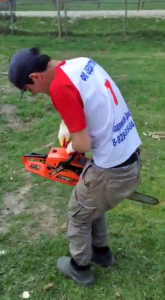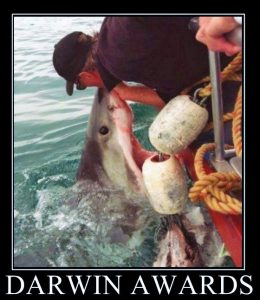
How would your character respond to potential death? Throughout time, people have faced illnesses and situations from which they knew, expected, or feared they might die. The possibilities are nearly limitless. Here are a few examples.
Situations

- Prisoner of war-torture-prisoner on death row
- Slavery
- Famine/starvation
- Exposure to extreme heat or cold
- Domestic violence
- Lost in the wild
- Having a stalker
- Being old
Illnesses

- COVID/epidemic/pandemic
- Bubonic plague
- TB/consumption
- Smallpox
- HIV/AIDS
- Malaria
- Seasonal influenza
- Cholera
- Rabies
- Pneumonia
- Infectious diarrhea
- Ebola
- Variant Creutzfeldt
- Jakob disease
- Middle East respiratory syndrome (MERS)
- Leprosy
- Cancer
Common Responses

A glance at these examples reveals that deadliness depends, not only on what but also on location, time period, and resources (medical and otherwise). As with so many things—all things?–responses vary. Here are some of the most common responses.
Denial

The label says nearly everything. The person, one way or another, says, “It just ain’t so.” Symptoms are ignored, dismissed as symptoms of something less serious. If actually diagnosed, the person thinks that a mistake has been made.

For example, a woman attributes her shortness of breath to asthma or pneumonia. When referred for X-rays, she doesn’t follow through. One Sunday, when she doesn’t make it to church, other congregants find her unconscious and call the volunteer EMT squad and take her to the emergency room. The preliminary diagnosis is pneumonia. Five days later, she dies of lung cancer that has metastasized to her brain and other soft organs.
Resignation

This is, basically, what will be, will be. Not motivated to seek or follow medical treatment. There are some religious sects that chew medical treatment, on the belief that God will heal or not, “His will be done.” Often life is carried on as close to normal as possible, sometimes the person does as little as possible, waiting for the outcome.
Resistance and Endurance

The epitome of this response would be Senator John McCain, a war hero who survived years of imprisonment and solitary confinement.
Fight
For a disease, this person would actively seek treatment, the latest treatment, even alternative treatment.

An example would be a man diagnosed with lung cancer who agrees to participate in an experimental trial. After two seizures in which he nearly dies of heart attacks, he leaves the trial, takes what ameliorating treatments he can find, and dies a year later, looking like an Auschwitz survivor.

For events such as exposure to heat or cold, it means physically fighting to survive, calling on whatever skills are available
Make the Best of It
This is a person who accepts the diagnosis, looks at the data on prognosis with various treatments, and moves forward. Here are a couple of examples of women with breast cancer.

- The first had an optimistic outlook. She had a lumpectomy, radiation, one infection followed by another, a second surgery, followed by months of treatment for a persistent non—healing wound. During those treatments, she spent hours a day, five days a week in a hyperbaric oxygen chamber. A year after the original diagnosis, she was offered plastic surgery to repair the surgical scars. After a year of life bound by the medical establishment, she opted to redecorate instead: she had the scarred area tattooed. Eventually that original tattoo was expanded and entirely encircled her torso. She reveled in reclaiming her time and her body, and celebrated five years of without a recurrence.

- The second woman, in her early fifties, had a less positive prognosis. There was evidence that the cancer had metastasized, so she embarked on a course of chemotherapy, every three weeks for months. Her approach to coping was to take a few days before each chemo treatment—while she felt the best—to check something off her bucket list.- Six years before her best friend’s body had been cremated, and she had promised to scatter the ashes in Arizona, so she flew from Massachusetts to Phoenix and fulfilled her promise. She went zip-lining in Costa Rica, spent time at the beach, danced on the beach at night and went skinny-dipping, went hang gliding off the cliffs in California. Not able to take a safari to Africa, she took her children on a private safari at the local zoo, went parasailing in the Bahamas, and got a tattoo—not to be seen in public

Try to Stay in Control

Sometimes the anxiety of the unknown and feeling out of control of one’s own time and body leads to an attempt to take control of the unknown by committing suicide.
Self Medication

Trying to avoid the reality, and/or pain, alcohol and/or drugs can make the wait time more bearable.

Questions for writers: What situation would—most reasonably—be potentially deadly for your character? And how would your character handle it?

